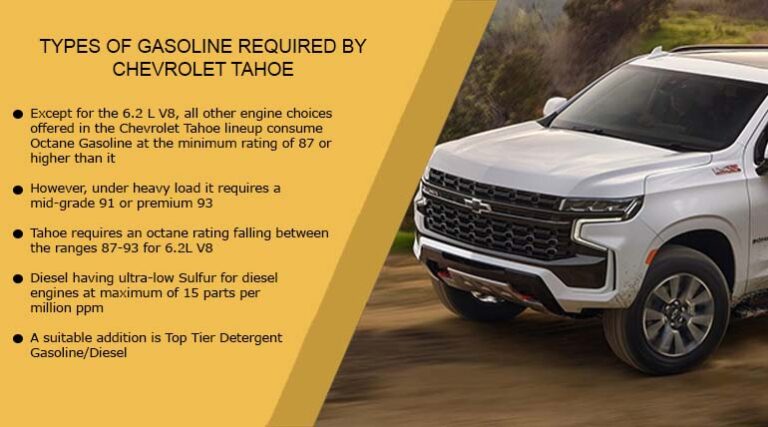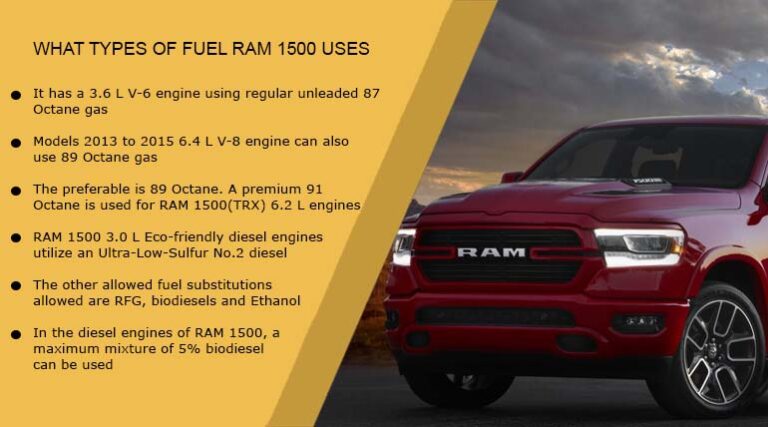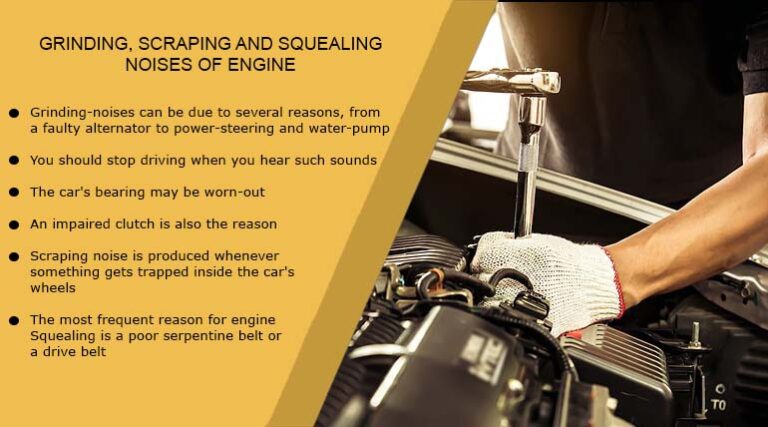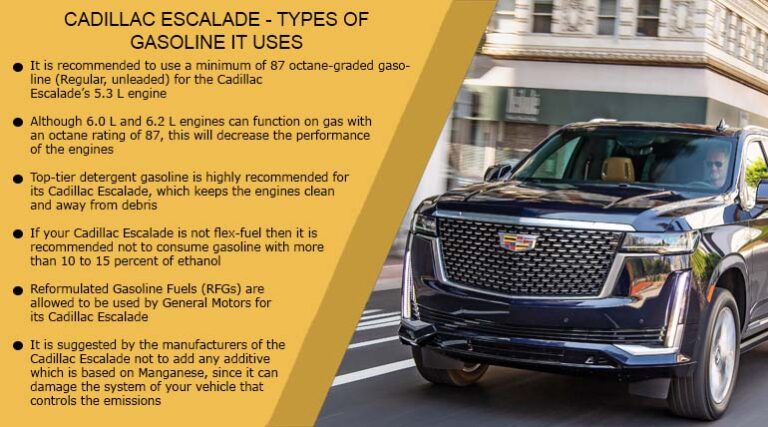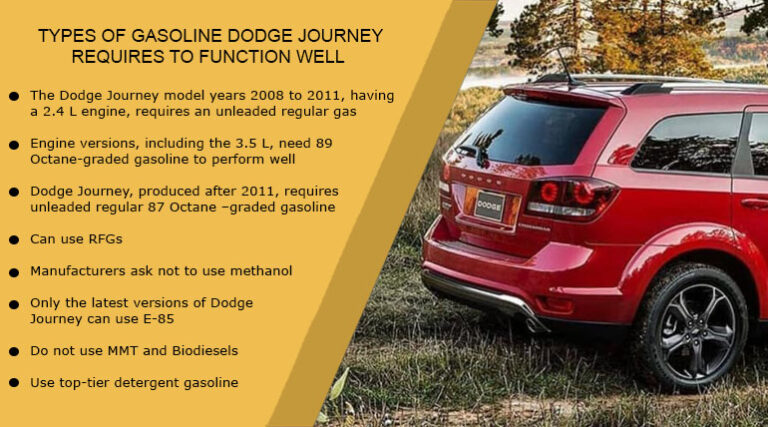Types of Gasoline A Honda Accord Uses (All Model Years)
This article will cover every you must know about the types of gasoline a Honda Accord uses. We will sort out all of your queries and confusion regarding other possible fuel variations available in the market for your Honda Accord.
Honda Accord, also known as Honda Inspire (in China and Japan), is a superb and luxurious vehicle that Honda manufactured back in 1976. It is primarily famous for its 4-door version of Sedans and is one of the greatest-selling cars in America. It is a compact and mid-size car with eleven generations (from the model year 1977 to the Present), good fuel mileage, and build quality.
Let’s go through a brief overview of this article regarding the correct types of gasoline for a Honda Accord before jumping into the details;
To summarize, Honda Accord can utilize a minimum of 87 octane-graded gasoline or above 87 (Regular, unleaded) for all the models and generations except for 2006 models. The 2006 models function well on regular, unleaded 86-octane-graded gasoline. But GMC Acadia’s manufacturers suggest using a premium 91 Octane-graded gas for heavy-duty tasks such as towing or under some load. Use top-tier detergent gasoline to have a better performance. Do not use Ethanol beyond 15% for the 10th generation only. The rest of the generations function well on Ethanol up to 10%.
Related article: GMC Yukon – Types of Fuel It Takes
Type of Gasoline A Honda Accord Uses (All Model Years)
However, by using the databases of the manufacturers and driver’s reviews around the globe driving a Honda Accord, all the data here concerning the correct types of gasoline for your Honda Accord, according to its generations and engines is present. Let’s begin!
The Honda Accord – Model Year- 1998 to 2001
Honda Accord model years 1998 to 2001 function well on a minimum of 86 octane-graded gasoline (Regular, unleaded) or higher.
Following are the two engines of the model years 1998 to 2001 Honda Accord offers;
- 2.3 L 5-speed (manual gasoline)
- 3.0 L 4-speed (automatic gasoline)
The Honda Accord – Model Year- 2001 to 2006
Honda Accord model years 2001 to 2006 function well on a minimum of 86 octane-graded gasoline (Regular, unleaded) or higher. But it is much better to utilize fuel more elevated than 86 octanes for enhanced performance and a healthy engine. One should know about the differences between gasoline and diesel-based engines.
Following are the three engines of the model years 2001 to 2006 Honda Accord offers;
- 2.4 L 5 speed (manual gasoline)
- 3.0 L 5 speed (auto gasoline)
- 3.0 L 5 speed (auto hybrid)
The Honda Accord – Model Year- 2007 to 2011
Honda Accord model years 2007 to 2011 function well on a minimum of 87 octane-graded gasoline (Regular, unleaded) or higher.
Following are the three engines of the model years 2007 to 2011 Honda Accord offers;
- 2.4 L 5 speed (auto gasoline)
- 2.4 L 5 speed (manual gasoline)
- 3.5 L 5 speed (auto gasoline)
The Honda Accord – Model Year- 2012 to 2017
According to the owner’s manual, the Honda Accord model years 2012 to 2017 functions well on a minimum of 87 octane-graded gasoline (Regular, unleaded) or higher for both the hybrid and gasoline engines.
Following are the four engines of the model years 2012 to 2017 Honda Accord offers;
- 2.4 L 6 speed (manual gasoline)
- 2.4 L 5 speed (gasoline, CVT)
- 3.5 L (gasoline)
- 2.0 L (hybrid)
The Honda Accord – Model Year- 2018 to Present
According to the owner’s manual, the Honda Accord model years 2019 to the current models function well on a minimum of 87 octane-graded gasoline (Regular, unleaded) or higher for both the hybrid and gasoline engines.
Following are the five engines that model years 2018 to present Honda Accord offers;
- 1.5 L 6 speed (manual gasoline)
- 1.5 L (gasoline, CVT)
- 2.0 L (10 speed auto gasoline)
- 2.0 L (6 speed manual gasoline)
- 2.0 L (hybrid)
Varieties of Fuel Other Than Conventional Gasoline
Today, we have various automobile fuel options, from Reformulated Fuel (RFG) to different additives and blends. But the question is, are they even compatible with Honda Accord? Do they have any side effects?
In the below section of this article, we will address this question quickly, so STAY TUNED!
Gasoline comprising Methylcyclopentadienyl Manganese Tricarbonyl (MMT)
It is suggested by the manufacturers of the Honda Accord not to add any additive based on Manganese since it can damage the system of your vehicle that controls the emissions. If it is used in cars that are not recommended, it can lead to much harm.
Gasoline comprising Methylcyclopentadienyl Manganese Tricarbonyl (MMT) was used to improve the poor-quality octane of fuel and seize the knocking noise produced by engines back then.
Do You Know?
There are many other fuel types which are even better than the regular gasoline fuel, such as RFG, gasoline oxygenates and many more.
Biodiesels
Biodiesel oils are very nature friendly since they are soyabean oil derivatives. Canola and yellow grease are the sources and are biodegradable. Although biodiesel oils are very nature friendly since they are derived from cooking oil (wasted), vegetable, and soybean oils, through a process called “Trans-esterification”, Honda Accord engines (all the generations), do not use biodiesels since they are only compatible with diesel-based engines.
Reformulated Gasoline Fuel (RFG)
It is allowed by the Honda Accord manufacturers (Honda) to consume RFG, whenever available, over a non-reformulated gasoline fuel. It is also best recommended for the area having smog at a higher concentration to decrease air pollution.
For cleaner and greener burning, and with a nature-friendly impact, Reformulated Gasoline (RFG) is produced, which causes reduced smog, and less toxic pollutants than regular gasoline, having no adverse consequences. It is said to increase the miles per gas number of your vehicle.
Honda Accord – Suggested Fuel
Honda Accord owners recommend using Top-tier detergent gasoline, which keeps the engines clean and away from debris. Types of gasoline a Honda Accord can utilize is a minimum of 87 octane-graded gasoline (Regular, unleaded), except for the 2006 model year which requires 86 octanes.
Gasoline to Oxygenated Blends
Honda Accord can function on oxygenated blends, but their usage requires the following recommendations;
- For cars after the 9th generation of the Honda Accord, manufacturers recommend consuming less than or equal to 10% of Ethanol (E-10).
- Utilize only less than or equal to 15% Ethanol in your Honda Accord for the 10th generation.
- Methanol is highly prohibited from using blended with gasoline and is incompatible.
- Even if the engine is a flex-fuel, do not use E-85.
Gasoline with Added Cleaning Agents
To keep your engine safe, and eligible for the standards of emission, TOP-TIER detergent gasoline is highly advised for Honda Accord. It is suggested that the Honda Accord should utilize a gas mixed with a large amount of agents used for cleaning, such as detergents. they keep your engine safe from deposits and dirt.
These are readily available with your nearest top-tier retailers. These cleaning additives increase the performance of your car.
Prohibited Additives
Additives prohibited by Honda Accord’s manufacturers include;
- Solvents
- Methanol
- Silicon
- Any metal-based ones
- Kerosene
- Additives based on metals
FAQ-SECTION!
“My Honda Accord’s Engine Knocks Afterwards Refilling”- What Does It Indicate?
If you put a lower than 87 octane-rated gasoline in your Honda Accord, it degrades the performance and economy of the engine. Gasoline will burn prematurely if one puts a lower-octane gas in a machine with higher compression. It causes an unsmooth burn and engine knock.
Hence, using the correct gasoline fuel with the proper octane grading is crucial.
If you hear a fainted-knocking sound from your Honda Accord’s engine, it indicates no danger. But if you hear a loud knocking sound from your Honda Accord’s engine, it is due to the usage of a lower quality and lower octane gasoline.
How Can I Reduce “Knocking Noise” from My Honda Accord’s Engine?
To reduce the knocking-like noise in your Honda Accord, fill up your tank with a recommended minimum of 87 Octane-graded gasoline or a mid-graded 91-octane gasoline or greater. Use at most 87 octane-graded gasoline.
Can All the Generations of Honda Accord Consume RFGs as Fuel?
You must be wondering if all generations of Honda Accord are suitable for using Reformulation Gasoline Fuel, so the answer to this is YES!
Honda Accord can utilize RFGs, as a fuel option whenever it is available since it has also been compulsory for almost nineteen regions in the United States of America to use less toxic fuel to protect the quality of air.
How to Locate a Flex-Fuel Vehicle?
A yellow bezel surrounding the inlet of the fuel tank indicates that your car is flex-fuel. If you cannot find it there, you can check out the door of your fuel tank as well.
However, Honda Accord’s manufacturers do not allow it to run the engine on an E-85, even if it is flex-fuel.
Conclusion
To conclude, Honda Accord, also known as Honda Inspire (in China and Japan), is a superb and luxurious vehicle that Honda manufactured back in 1976. It is famous primarily for its 4-door version of Sedans and is one of the greatest-selling cars in America.
About the types of gasoline a Honda Accord uses, it can utilize a minimum of 87 octane-graded gasoline or above 87 (Regular, unleaded) for all the models and generations except for 2006 models. The 2006 models function well on regular, unleaded 86-octane-graded gasoline.


